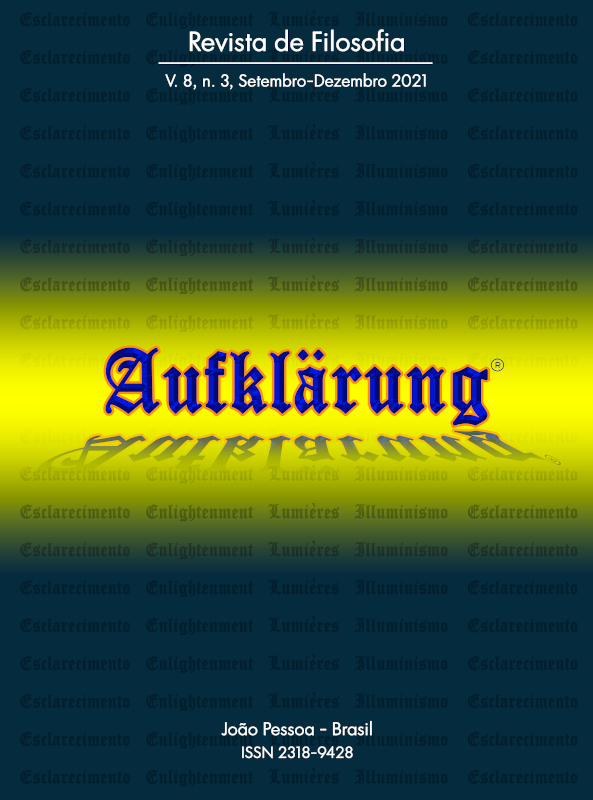DIVISION OF POWERS AND REPRESENTATION IN ROUSSEAU
DOI:
https://doi.org/10.18012/arf.v8i3.59790Keywords:
Rousseau, Separation of Powers, RepresentationAbstract
It is intended to show that Rousseau's fundamental political ideas seem to suggest a democratic populism, as citizens must form a general will and directly exercise popular, inalienable and indivisible sovereignty, through legislative power, which makes laws as general acts, which they must be carried out, as private acts, by the prince in the exercise of executive power, which would make the division of powers and representation impossible. However, using as an method the analysis of the works of Rousseau and the commentators cited in the references, it is observed that, as he deduces the consequences of these fundamental ideas and ponders them for a naturalistic realism, the republican political institutions arise, which reveal the limits of popular sovereignty and the need for a concept of division of powers and representation. In this sense, it is concluded that the prince not only can but must represent the sovereign both in the exercise of executive power and in the sovereign's own tasks, in legislation.
Downloads
References
ARISTOTLE. Politics - A Treatise on Government. The Project Gutenberg EBook of Politics, by Aristotle.
BACHOFEN, Blaise. La condition de la liberté. Rousseau, critique des raisons politiques. Paris: Payot, 2002.
CHARVET, John. The Social Problem in the Philosophy of Rousseau. Cambridge: Cambridge University Press, 1974.
COBBAN, Alfred. Rousseau and the Modern State. 2 ed. London: Archon Books, 1964.
COHEN, Joshua. Rousseau: A Free Community of Equals, Oxford: Oxford University Press, 2010.
CROCKER, Lester G. Rousseau's Social Contract: an Interpretive Essay. Cleveland: Case Western Reserve University Press, 1968.
DÉRATHÉ, Robert. Jean-Jacques Rousseau et la science politique de son temps. Paris: Vrin, 1970.
FETSCHER, Iring. Rousseaus Politische Philosophie. Neuwied: Luchterhand, 1962.
FRALIN, Richard. Rousseau and Representation: A Study of the Development of His
Concept of Political Institutions. New York: Columbia University Press, 1978.
FRALIN, Richard. The Evolution of Rousseau's View of Representative Government. Political Theory, Vol. 6, No. 4, Special Issue: Jean-Jacques Rousseau, nov., 1978, p. 517-536.
GIERKE, Otto von. Johannes Althusius und die Entwicklung der naturrechtlichen Staatstheorie. Breslau: Wilhelm Koebner, 1880.
GOYARD-FABRE, Simone. Politique et philosophie dans l’œuvre de Jean-Jacques Rousseau. Paris: PUF, 2001.
HALL, John C. Rousseau: An Interpretation of His Political Philosophy. Cambridge: Schenkman Publishing Company, 1973.
HENDEL, Charles W. Jean-Jacques Rousseau: Moralist. London: Oxford University Press, 1934.
KANT, Immanuel, AA 20: Handschriftlicher Nachlaß. Bemerkungen zu den Beobachtungen über das Gefühl des Schönen und Erhabenen. https://korpora.zim.uni-duisburg-essen.de/kant/aa20/
INSTON, Kevin. Rousseau and Radical Democracy. London: Continuum, 2010.
MACHIAVELLI, Nicolò. Discorsi sopra la prima Deca di Tito Livio. Firenza: Sansoni, 1971.
MANIN, Bernard. The Principles of Representative Government. New York, NY: Cambridge University Press, 1997.
MASTERS, Roger D. The Political Philosophy of Rousseau. Princeton: Princeton University Press, 1968.
MILLER, James. Rousseau: Dreamer of Democracy. New Haven, CT: Yale University Press, 1984.
PETTIT, Philip. Republicanism: a Theory of Freedom and Government. Oxford: Oxford University Press, 1997.
PLAMENATZ, John. Machiavelli, Hobbes, and Rousseau. Oxford: Oxford University Press, 2012.
RILEY, Patrick. Will and Political Legitimacy: A Critical Exposition of Social Contract Theory in Hobbes, Locke, Rousseau, Kant, and Hegel. Cambridge, MA: Harvard University Press, 1982.
ROSENBLATT, Helena (ed.) Thinking with Rousseau: From Machiavelli to Schmitt. Cambridge: Cambridge University Press, 2017.
ROUSSEAU, Jean-Jacques. Du contrat social. [Paris]: Gallimard, 1964.
ROUSSEAU, Jean-Jacques. Projet de constitution pour la Corse. La gaya scienza, © avril 2012.
ROUSSEAU, Jean-Jacques. VOLUME 1. Ouvrages de politiques, in : Collection complète des oeuvres, Genève, 1780-1789, vol. 1, in-4°, édition en ligne www.rousseauonline.ch, version du 7 octobre 2012. http://www.rousseauonline.ch/Text/volume-1-ouvrages-de-politique.php.
ROUSSEAU, Jean-Jacques. VOLUME 5. Emile, ou de l'éducation, tome IIin Collection complète des oeuvres, Genève, 1780-1789, vol. 5, in-4°édition en ligne www.rousseauonline.chversion du 7 octobre 2012. http://www.rousseauonline.ch/Text/volume-5-emile-ou-de-l-education-tome-ii.php.
ROUSSEAU, Jean-Jacques. VOLUME 6. Mélanges, tome premierin Collection complète des oeuvres, Genève, 1780-1789, vol. 6, in-4°édition en ligne www.rousseauonline.chversion du 7 octobre 2012. http://www.rousseauonline.ch/Text/volume-6-melanges-tome-premier.php.
SABINE, George H. A History of Political Theory. New York: Holt, Rinehart & Winston, 1961.
Additional Files
Published
How to Cite
Issue
Section
License

This work is licensed under a Creative Commons Attribution 4.0 International License.
Journal general policy
1.This journal works under a Creative Commons License aplied to online journals. That icence can be read in the following link: Creative Commons Attribution 4.0 International (CC BY 4.0).
2.Accordingly to this License, a)the journal declares that authors hold the copyright of their articles without restrictions, and they can archieve them as post-print elsewhere. b)the journal allow the author(s) to retain publishing rights without restrictions.
Metadata Policy for information describing items in the repository
1. Anyone may access the metadata free of charge at anytime.
2.The metadata may be re-used in any medium without prior permission, even commercial purposes provided the OAI Identifier or a link to the original metadata record are given, under the terms of a CC BY license refered for the Journal.







































